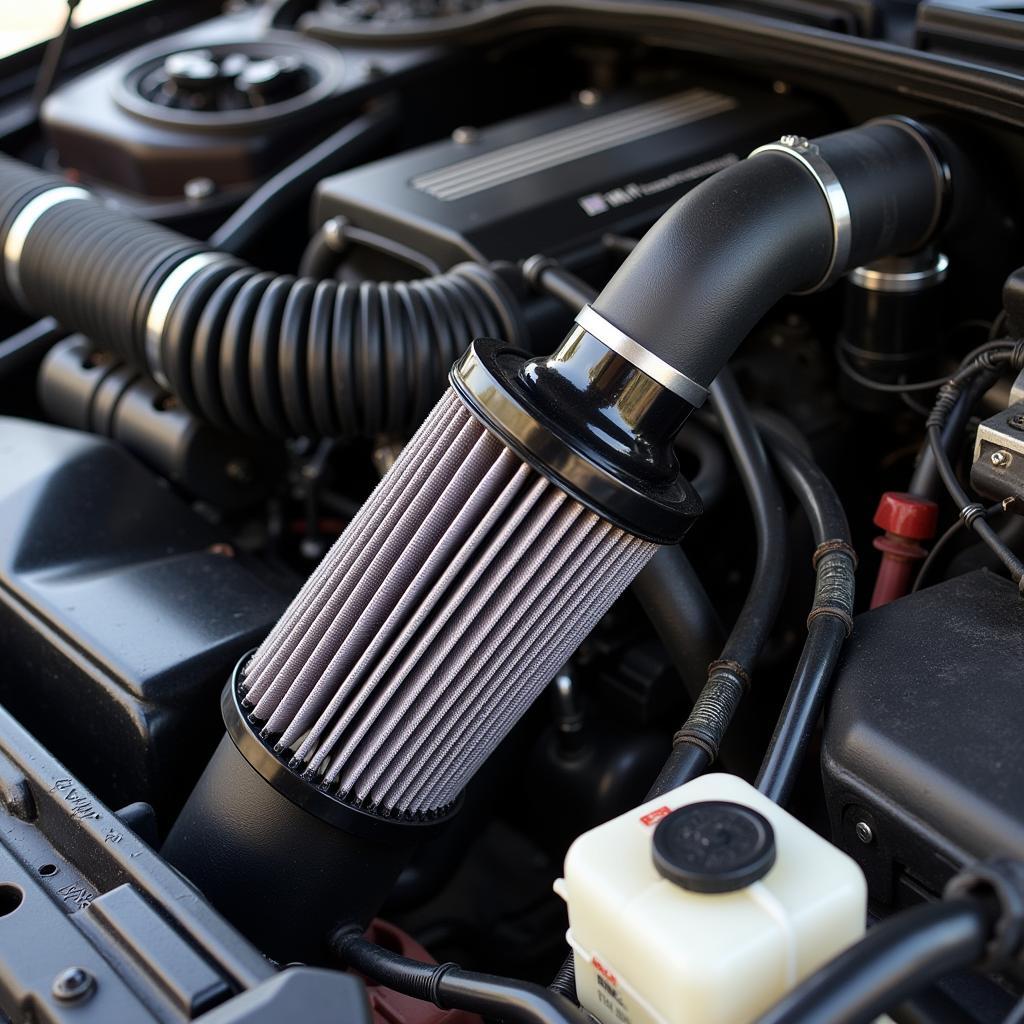The distinct growl of a BMW M3 E92 is more than just noise; it’s a symphony of engineering and performance. This article delves into the intricacies of the BMW M3 E92 sound, exploring everything from its naturally aspirated V8 engine to common issues that can affect its iconic roar. We’ll cover troubleshooting, modifications, and maintenance tips to help you keep your M3 E92 sounding its best.
Decoding the BMW M3 E92 Engine Note
The heart of the BMW M3 E92 sound is the S65 V8 engine. This naturally aspirated powerhouse produces a high-pitched, aggressive tone that’s instantly recognizable. Unlike turbocharged engines, which can sound muffled, the S65’s free-flowing exhaust allows for a raw, unfiltered sound experience. This unique sound profile is a significant part of the E92 M3’s appeal. It’s a sound that embodies power, precision, and pure driving pleasure.
Common Issues Affecting BMW M3 E92 Sound
While the S65 engine is generally reliable, certain issues can affect the BMW M3 E92 sound. Exhaust leaks are a common culprit, causing a hissing or rasping sound. Damaged exhaust components, such as a cracked muffler or resonator, can also alter the sound. Additionally, issues with the engine itself, like rod bearings or throttle actuators, can indirectly influence the exhaust note. Regular maintenance and inspections are crucial to identify and address these issues promptly. Ignoring these problems can lead to more severe damage and costly repairs. Check out our article on 2007 bmw 335i bluetooth audio for insights on audio integration in another BMW model.
Modifying the BMW M3 E92 Sound
For those seeking to personalize their M3 E92’s sound, several modification options are available. Aftermarket exhaust systems are a popular choice, offering various sound profiles ranging from deep and throaty to loud and aggressive. Cat-back exhaust systems, which replace the section of the exhaust from the catalytic converters back, are a common upgrade. These systems can improve exhaust flow and enhance the engine’s natural sound. Some owners opt for axle-back exhausts for a more subtle change, while others choose full exhaust systems for maximum performance gains.
Want to upgrade your sound system in another BMW model? Explore our guide on bmw 335i professional audio.
Maintaining the BMW M3 E92’s Sonic Signature
Preserving the iconic BMW M3 E92 sound requires proper maintenance. Regular oil changes with high-quality oil are essential for engine health and can indirectly impact exhaust sound. Inspecting and cleaning the exhaust system periodically can prevent the buildup of carbon and other debris that can affect sound quality. Additionally, addressing any engine issues promptly can prevent further damage and preserve the integrity of the exhaust note. You can consider a 2007 bmw e90 sound upgrade for a different model.
Why does my BMW M3 E92 sound different?
Several factors can cause changes in your BMW M3 E92’s sound, including exhaust leaks, damaged components, and engine issues.
How can I make my BMW M3 E92 louder?
Aftermarket exhaust systems, such as cat-back or axle-back systems, can significantly increase the volume of your M3 E92. Explore options for a bmw 335i bluetooth audio setup.
What causes a rasping sound in my BMW M3 E92 exhaust?
A rasping sound is often indicative of an exhaust leak or damaged exhaust components.
Consider a 2007 bmw 335i e90 sound system upgrade for a comprehensive audio enhancement.
“The S65 engine is a masterpiece of engineering. Maintaining its unique sound is a testament to the owner’s commitment to the car.” – David Miller, Automotive Engineer.
“A proper exhaust system is crucial for maximizing the M3 E92’s performance and enhancing its already impressive sound.” – Susan Carter, Performance Specialist.
In conclusion, the BMW M3 E92 sound is an integral part of its identity. Understanding its nuances, addressing potential issues, and exploring modification options can allow you to fully appreciate and personalize this iconic vehicle’s sonic signature. Remember the importance of proper maintenance to keep your BMW M3 E92 sounding its best for years to come.
FAQ
- What type of engine does the BMW M3 E92 have? A naturally aspirated V8.
- What are common issues affecting the BMW M3 E92 sound? Exhaust leaks and damaged components.
- How can I modify the sound of my BMW M3 E92? Aftermarket exhaust systems.
- What maintenance is recommended for the BMW M3 E92 exhaust? Regular inspections and cleaning.
- Why is the BMW M3 E92 sound so distinctive? Its high-revving, naturally aspirated V8 engine and expertly tuned exhaust system.
- How can I diagnose an exhaust leak in my BMW M3 E92? Listen for hissing or rasping sounds, and visually inspect the exhaust system for damage.
- What are the benefits of a cat-back exhaust system on a BMW M3 E92? Improved exhaust flow, enhanced sound, and potential performance gains.
Need help with your BMW M3 E92 or other vehicle diagnostics and programming? Contact us via Whatsapp: +1 (641) 206-8880, Email: CARDIAGTECH[email protected], or visit us at 276 Reock St, City of Orange, NJ 07050, United States. We offer 24/7 customer support.

